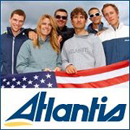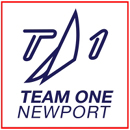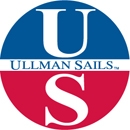
|
|
|
Scuttlebutt: Ken Legler Update
(Ken Legler is known as the sailing coach for Tufts University, a premier race officer, and of late, a fighter in his personal battle with cancer. Ken had provided Scuttlebutt with an update in February 2006, and below submits his latest report on his year in the trenches. While his battle is far from over, Ken is winning, demonstrating to all of us how a determined, positive approach can overcome long odds to triumph over even the strongest foe.) 2006 – My Forgettable Year December, 2006: Perhaps I shouldn’t call it forgettable; after all, battling Stage Four throat cancer is hard to forget. But, it doesn’t hurt anymore. It has been said that comedy is tragedy plus time. If that’s true, then some pretty silly things happened to me in the last year. Some wonderful things happened too. The biggest of which was the amount of support I received. I must have had a dozen visitors, some 50 cards, and countless e-mails. I tried to answer them but I just couldn’t keep up. Instead I just said “Thank you,” out loud, somehow hoping the writer a thousand miles away could hear me. Many of you have recently asked “How’s it going now, what’s the latest?” In short, I am doing pretty well. My body is not the same as it was in 2005, in some ways it is better. The bad news is that I have lost most of my saliva glands from the radiation treatment. The good news is that I lost nearly forty pounds and will not be putting it back on. The best news is that I am currently cancer free. There is a residual two centimeter sack full of benign and dead tissue in the side of my throat where there had been a three by seven centimeter cancerous tumor a year ago. Here’s a chronology of what happened. After a series of tests starting in July 2005, I was finally diagnosed with squamus cell cancer of the mouth and throat on December 14, 2005. It was not caught early. A week later I had minor surgery to install my feeding tube and stage the cancer. The surgeon called it stage four (the worst) and gave me less than a 50-50 chance of survival. I thought it should have been 90%. I called him that afternoon and told him he was wrong due to many positive factors I had going for me. Those positives included my age, a healthy non-smoking lifestyle including my work with 20 year olds, and the fact that coaching has taught me to think positive. He agreed. The plan was for a combination of chemotherapy and radiation starting right away for seven weeks. Thanks to Dave Perry’s advice and my girlfriend Lisa Goldsmith’s footwork, I got a second opinion at Dana Farber Cancer Institute in Boston. They agreed with the findings but had a better plan. It called for three rounds of chemo to be followed by seven weeks of radiation. This would increase my odds of survival to 80%. I believed that to be 90% due to all the other positive factors. It would mean commuting to Boston but so what. The three rounds of chemo were administered through my newly installed port-a-cath in my chest on January 15, February 8 and March 1. The first round made me pretty tired. The second round was not as tough, as measured by my ability to skip steps. The third round must have been cumulative. I could no longer skip steps and mouth sores prevented my from chewing anything. Those chocolate frappes sure tasted good. I took a week break in March before starting radiation so I could do our team’s spring break trip to Maryland. I didn’t want to miss “the Trux” at Navy, college sailing’s biggest regatta and our annual camping/training trip at St. Mary’s College. Fortunately I had two coaches there helping, Prescott Cronin for a week and Amanda Callahan for the rest of the season. I could throw a Frisbee during calms but couldn’t run to catch it and I couldn’t sail. I’m not sure I helped the team very much but they sure helped me. A requirement for going on our spring break trip is providing five minutes of entertainment around the campfire. This year the entertainment was as good as ever. Radiation started right after returning to Massachusetts. They say you don’t feel a thing for the first week but somehow I ended up in the emergency room the first night with a swollen throat. I was able to coach all day on the first weekend but that was about it. With radiation every weekday for seven weeks, at best I was only able to make cameo appearances at college regattas on weekends. A few more emergency room trips and a week stay in the hospital and it was finally over May 18. The effects of the radiation got stronger for the first two weeks and continued all summer. My sister Penny, a nurse practitioner and former oncology nurse from Chicago, flew out for the first week. Recovery began in June, not from the cancer, it was presumably gone, but from the treatment. My feeding tube, which went in three months prematurely, was now my only vehicle of nutrition. I couldn’t get a single drop of liquid, let alone food, down my throat. If the feeding tube was my life support, morphine was my best buddy. It comes in patches for the arm and liquid for the tube. You’re not allowed to drive on morphine so I was on foot (and bike and train) until August. It was summer and I couldn’t drive to work so there was only one thing to do, go sailing. I biked to the local club, Lake Quanapowitt YC in Wakefield. There I met Steve Breton, a Day Sailer class enthusiast and off we went to AC’s and nationals. He also had a 110 which I got to bomb around on. I managed to get to Courageous Sailing Center in Boston for blind sailing practice with my blind and sighted guide friends on J-22s. Leaving the dock was the best feeling of the day. On one day the two hours afloat was the only two hours all day I didn’t hurt. Nighttime was no picnic either. I had to hook up my tube to a pump for continuous slow drip nutrition. I had to get rid of that damn feeding tube. The first breakthrough came in July when I was able to swallow some water and a slice of a canned peach in syrup. I also needed some lymphadema therapy but the only nearby specialists wouldn’t return my calls. If only I could drive. Off with the patches and riddance to the liquid morphine. Without it I could legally drive. Suddenly I wasn’t feeling so well. I had to pass on a day of J-22 sailing with Mike Trovato in Hyannis. The thought of battling 2-3 foot waves in 18 knots of wind on a J-22 for this hurting body just didn’t seem like fun. The next day I tried driving to the Lahey Clinic. The lymphadema specialists fit me in their schedule but also commented that I didn’t look too good. That was an understatement. I was suffering from full on withdrawal and didn’t know it. How would I know; I had never been addicted to drugs before and no one told me. In this case ignorance was not bliss. I called my case nurse at Dana Farber for ideas and she asked me what I was taking. “Nothing,” I replied. “You get right back on that stuff,” she responded. I thought of Gary Jobson’s wisdom, “Recovery is not linear.” How prophetic those words were for this week. Once driving I got back to work in August. Not quite full time but I spent some time in the Tufts Sailing Office, did clinics in Chatham and Nahant MA, Shelter Island, NY and ran the A-Scow Inlands at Lake Geneva, WI. The Blind Nationals at the end of August turned out to be an easy regatta despite great competition from JP Creignou with sighted guide Betsy Allison and all the usual blind sailing veterans. The wind softened from 15 to 5 and we took off on speed with a lighter crew that included two women and our seasoned skipper Inki. Getting back to seven days/week at Tufts was kind of tough but it felt pretty good at first. September is a busy month in college sailing with 40 returning sailors and 30 freshmen trying out. Compounding the catch up were weekly doctor’s appointments and the week-long Blind Worlds in Newport. I lost it one day at Tufts practice and started yelling. Junior Peter Fallon sailed right up and told me to go home and rest. He said they needed me too much to lose me now. Those words meant a great deal so I did what he said. To lose the feeding tube I had to stop using it for two weeks without losing any more weight. I came in two weeks later and convinced the nutritionist that I was eating just enough without it. She knew how motivated I was and gave me the okay for a specialist to take it out that afternoon. The procedure took only one minute; 30 seconds of Novocain and 30 seconds of yanking. “Are you okay? She wondered.” “Are you kidding me? This is the best I have felt all year. Just in time for the Blind Worlds. Long story short on the Blind Worlds: We led for three days and blew it in the end. We were plenty fast in everything but heavy air but the competition was just too good. Still, we went away happy earning third and buoyed with the knowledge that the next worlds will be in New Zealand in 2009. October brought a visitor to the Tufts Sailing Office with nothing but good news. It was Waddy Garrett from Virginia whose son sailed at Navy. Waddy had exactly what I had only one year earlier including the same treatment plan. His council had been right on throughout. He explained why after five months out from treatment, recovery was still ongoing. He’s an expert on radiation and spoke from first hand knowledge. The good news was that we survived nearly lethal doses of radiation and its cumulative effect. The best news was that I could expect to feel better every month for the next year. Come to think of it, so far that’s been true. I finally got scans done in late November, both CT and PET scans. As mentioned earlier, there is a two centimeter sack of benign tissue. My next scan is in late January to see if it is shrinking. It’s on to 2007. I’m not supposed to drink for two more years but I’ll sneak in a beer on New Year’s Eve, perhaps during the Patriots game, just as I had a glass of wine on December 14, the anniversary of my diagnosis. I can’t wait for 2007, with Acura Key West Race Week, Spring break camping with 25 eager undergrad sailors in St. Mary’s MD, the whole college season and summer. Summer trips include a clinic trail in Maine and Cape Cod, my two fav summer destinations. At my new weight, I should take up dinghy sailing again. To the surprising number of people that supported me through this ordeal, you should all know, it worked! See you in ’07! -- Ken Legler Click Here to submit comments. |

















|

